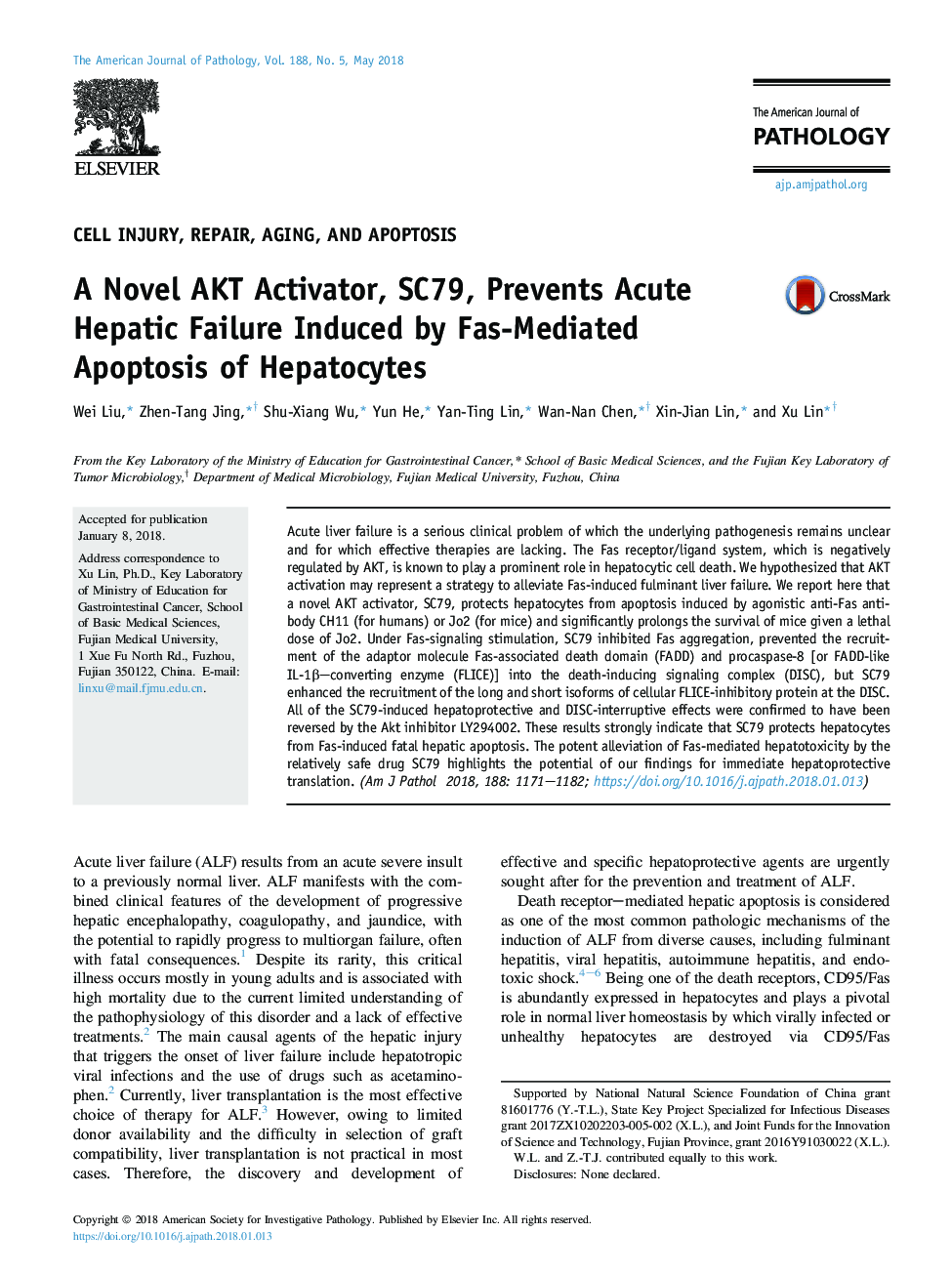| Article ID | Journal | Published Year | Pages | File Type |
|---|---|---|---|---|
| 8651971 | The American Journal of Pathology | 2018 | 12 Pages |
Abstract
Acute liver failure is a serious clinical problem of which the underlying pathogenesis remains unclear and for which effective therapies are lacking. The Fas receptor/ligand system, which is negatively regulated by AKT, is known to play a prominent role in hepatocytic cell death. We hypothesized that AKT activation may represent a strategy to alleviate Fas-induced fulminant liver failure. We report here that a novel AKT activator, SC79, protects hepatocytes from apoptosis induced by agonistic anti-Fas antibody CH11 (for humans) or Jo2 (for mice) and significantly prolongs the survival of mice given a lethal dose of Jo2. Under Fas-signaling stimulation, SC79 inhibited Fas aggregation, prevented the recruitment of the adaptor molecule Fas-associated death domain (FADD) and procaspase-8 [or FADD-like IL-1β-converting enzyme (FLICE)] into the death-inducing signaling complex (DISC), but SC79 enhanced the recruitment of the long and short isoforms of cellular FLICE-inhibitory protein at the DISC. All of the SC79-induced hepatoprotective and DISC-interruptive effects were confirmed to have been reversed by the Akt inhibitor LY294002. These results strongly indicate that SC79 protects hepatocytes from Fas-induced fatal hepatic apoptosis. The potent alleviation of Fas-mediated hepatotoxicity by the relatively safe drug SC79 highlights the potential of our findings for immediate hepatoprotective translation.
Related Topics
Health Sciences
Medicine and Dentistry
Cardiology and Cardiovascular Medicine
Authors
Wei Liu, Zhen-Tang Jing, Shu-Xiang Wu, Yun He, Yan-Ting Lin, Wan-Nan Chen, Xin-Jian Lin, Xu Lin,
